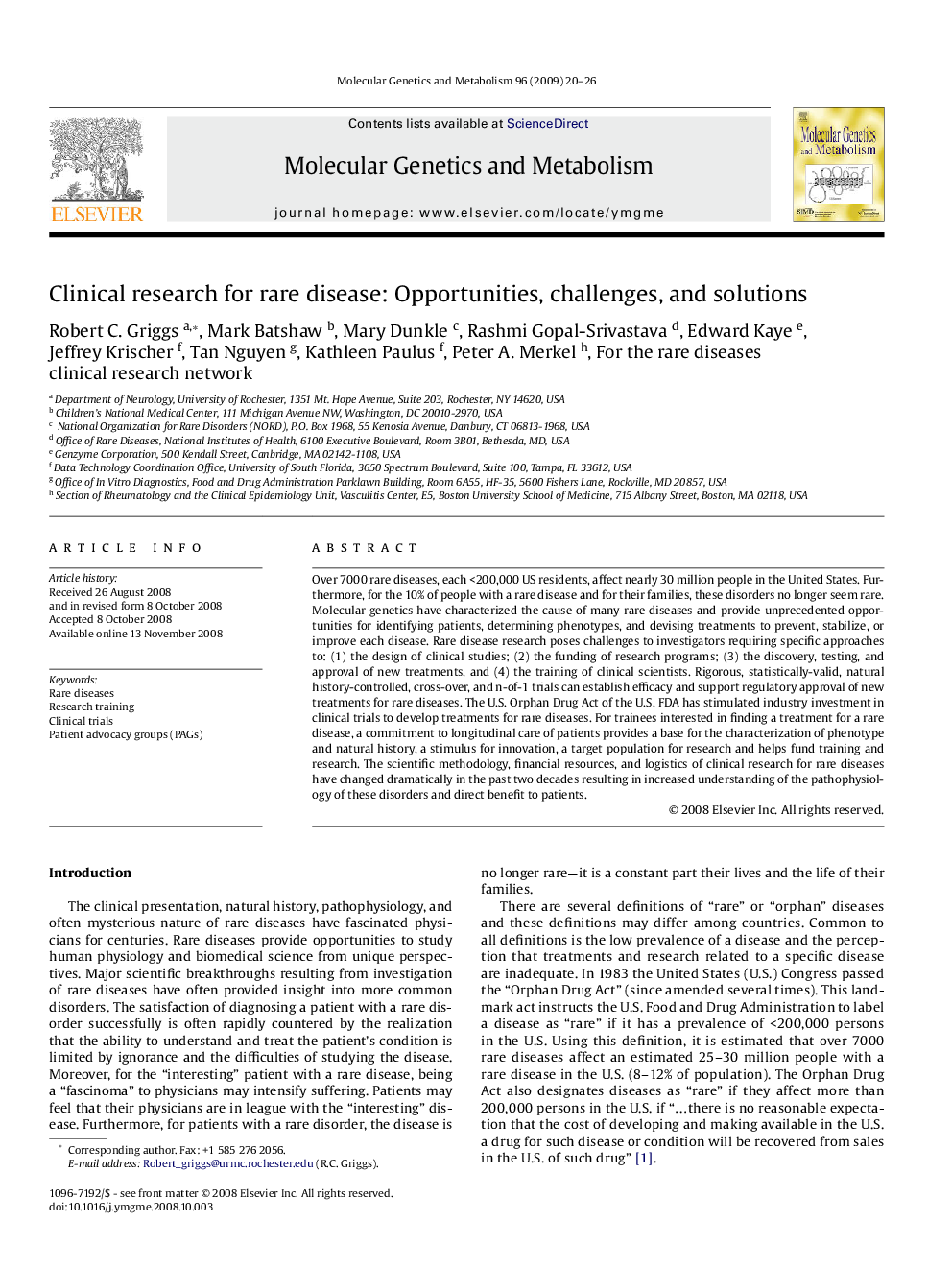| Article ID | Journal | Published Year | Pages | File Type |
|---|---|---|---|---|
| 1999022 | Molecular Genetics and Metabolism | 2009 | 7 Pages |
Over 7000 rare diseases, each <200,000 US residents, affect nearly 30 million people in the United States. Furthermore, for the 10% of people with a rare disease and for their families, these disorders no longer seem rare. Molecular genetics have characterized the cause of many rare diseases and provide unprecedented opportunities for identifying patients, determining phenotypes, and devising treatments to prevent, stabilize, or improve each disease. Rare disease research poses challenges to investigators requiring specific approaches to: (1) the design of clinical studies; (2) the funding of research programs; (3) the discovery, testing, and approval of new treatments, and (4) the training of clinical scientists. Rigorous, statistically-valid, natural history-controlled, cross-over, and n-of-1 trials can establish efficacy and support regulatory approval of new treatments for rare diseases. The U.S. Orphan Drug Act of the U.S. FDA has stimulated industry investment in clinical trials to develop treatments for rare diseases. For trainees interested in finding a treatment for a rare disease, a commitment to longitudinal care of patients provides a base for the characterization of phenotype and natural history, a stimulus for innovation, a target population for research and helps fund training and research. The scientific methodology, financial resources, and logistics of clinical research for rare diseases have changed dramatically in the past two decades resulting in increased understanding of the pathophysiology of these disorders and direct benefit to patients.
